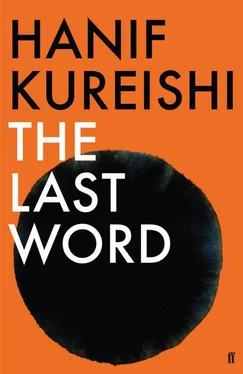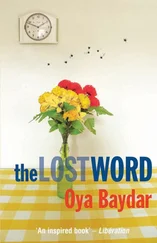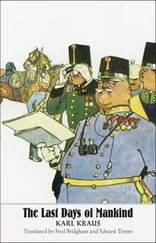‘When did you first get interested in this?’ Harry asked him, adjusting his digital recorder but not pressing ‘record’ yet.
‘I can remember as a young man in Madras reading something by Bertrand Russell, who was famous for knowing everything, and a huge passion of mine then.
‘He wrote somewhere of his emotional life being “irrational”. By God, he disapproved of the “irrational”. Russell’s loves, hates, desires — the entire bodily caboodle, and all the greatest philosopher in the world could say was that it was “irrational”. It made me want to say my say, as if the whole thing still required explaining, to hunt down these irrational people, the ones so powerful in the world, and hear their speech.’
‘What is the cure, sir?’
‘Halt your naughty finger before I crush it. Do not record this: it is between us. You ask for the cure — I presume the cure for excessive appetite?’
‘Yes.’
Mamoon laughed. ‘All religions have concerned themselves with the weaning of individuals from their desire. Who, after all, can live with their own wanting? Let’s think about endurance, as the Stoics would have it. I like to read Seneca, who says it can be borne. Or self-knowledge, as Plato preferred it, which might dissipate it. But appetite is all we have and we cannot or should not be cured of it. I’m no Freudian, yet no one can deny that desire is the motor of our existence, as it is for any child who wants to go on living. As your enthusiasm indicates, it is usually out of control and it is tied to madness, unfortunately, because the object — the woman in mind — can only be elusive, and will evade one. She will, naturally, have other preoccupations, other lives. This will create jealousy, the belief that the other has what we don’t have. Proust made a mint out of this simple idea. Still, more desire, less punishment, I say.’
Harry said, ‘You mention Bertrand Russell and his horror of disorientation.’
‘So?’
Harry glanced at the clipboard, noticed a question and looked up at Mamoon. ‘Isn’t it the case that when you met Marion for the first time you experienced a physical connection you’d never had with anyone? That you experienced, at that time, a large bout of irrationality which de-centred you?’
‘You are creating a history for me, one that is parallel to my life. But why don’t you ask her?’
‘Obviously, I need to do that. Would you approve? Can I say that, sir?’
‘That would be up to Marion. But darling Alice with her massages and photographs — and how lucky you are there — has convinced me to be more co-operative with you.’
‘She puts my case?’
‘She is kind, you know, and has pleaded for you. She has thought about my suffering, too, which will be over quicker if I let you in more. Go to Marion and see. I am so looking forward to her giving you a flea in your ear, as she has done to other snoopers. One begging scribbler she tipped a bottle of ink over.’
‘Why?’
‘You will see — ha — she is chilli hot!’
‘Is that why you didn’t marry her?’
Mamoon laughed and said, ‘It would be true to say there are occasions when certain pleasures can be so strong that you might have to rethink your life entirely, as a way of taking them in — or avoiding them.’
Harry said, ‘Pleasure can knock you right off your feet, it is true. Do you mean that a series of orgasms can be a new beginning?’
Mamoon got up. ‘Whatever Marion says, I will always be the stranger in your book.’
‘Thanks for your blessing, sir,’ said Harry. ‘A final question, one which has just occurred to me, I don’t know why. Do you regret not having children?’
‘Not having children has been the one bright spot in my life so far,’ said Mamoon. ‘Now, pack your bags and fuck off out of my damn sight. I need peace again.’
‘Thank you, sir.’
‘You will thank me a thousand more times,’ he said, giggling. ‘Particularly when you sneak back here with your soul bleeding. I can’t wait.’
After almost ten days, Alice and Harry went back to London. Lotte, from Rob’s office, had sent Harry airline tickets and a busy itinerary for the next few weeks. Rob also wanted Harry to push on with the book; he needed to see at least a couple of chapters by the end of the month.
Harry was relieved to get out of the claustrophobic atmosphere of Mamoon’s place. In town, he and his father and brothers watched Chelsea and ate; afterwards, their father liked it when they took part, as a family, in the local pub quiz. The prize could have been £10 million, it was taken so seriously by the men. The twins were good at sport and music, and their father had science covered. Harry did literature. They came second and were not happy, Father castigating them as if he’d just received a unpleasant letter from the school head.
Harry was reminded who he was. His brothers weren’t impressed or intimidated by Mamoon. There was a cold severity in Mamoon’s work, and, because he had never written a book the title of which everyone could recognise, and he rarely appeared on television, they didn’t give a damn who he was. What they didn’t like was their little brother being run ragged by a manic egotist who wanted a flattering portrait of his big head. Harry saw that, in the shadow of Mamoon’s personality, he had allowed his identity to be attacked; Liana and Mamoon seemed to be able to do or say anything they liked to him. And his father had said, ‘So far you’ve been the mirror he needs, Harry, and why wouldn’t he be happy?’
‘He’s benign.’
‘Are you sure? Why don’t you mess with his mind a little, twist his penis, confront him, and see what happens? Sometimes a little disorder can be creative.’
Harry and Alice went to Paris for the flim-flam of the fashion shows, before taking the overnight train to Venice — Harry’s mother’s favourite city — where Alice had never been. When he and Alice woke up in the morning, in the bunks of the sleeper, it was a hop, skip and jump to the Grand Canal. They were barely off the vaporetto, exploring. Harry was keen to see Alice seeing things, to watch her as the world unfolded. One evening she took his hand. She had taken a pregnancy test. It was positive. They hadn’t exactly planned things, but they had discussed them a little, and she was pleased; was he?
Yes, yes, and maybe. They were joined for good now. He was shocked, and confused and afraid. Suddenly the future had a shape and an inevitability. There would be duties. He would become a different sort of person, and they would know one another in a new way. ‘Christ,’ he said to his father. ‘I’m done for.’
‘About time. Welcome to the world,’ Father said. ‘Do you know how to think about it?’
‘No. . Not yet.’
‘Does she?’
‘She has her friends. They are gossiping and planning already. I feel alone.’
‘It will join you to the world, Harry. You can’t run all your life. I love being a father, and I suspect you will too. You’re a better man than you believe you are.’
After a few days, Alice went back to work, and Harry, with this new knowledge growing in him, flew to India to look at the places Mamoon had lived as a child.
For two and a half weeks he met family members and acquaintances of the old man, along with those Mamoon had supposedly snubbed, insulted, exploited, or fucked. He discovered what a good scholarship boy Mamoon had been, as well as the fact he’d been aloof and appeared to consider himself superior to those around him. ‘The cut and strut of him in his blazer with shining buttons!’ Harry was told. ‘The looking down of it!’ He heard from several older people that Mamoon had not been a ‘real’ Indian, and was as alienated on the subcontinent as he would be in Britain. He spoke English at home, except with the servants, read only English and French literature, knew little about Islam or Hinduism, both of which he considered to be the opium of the masses, and had rarely visited the countryside.
Читать дальше












